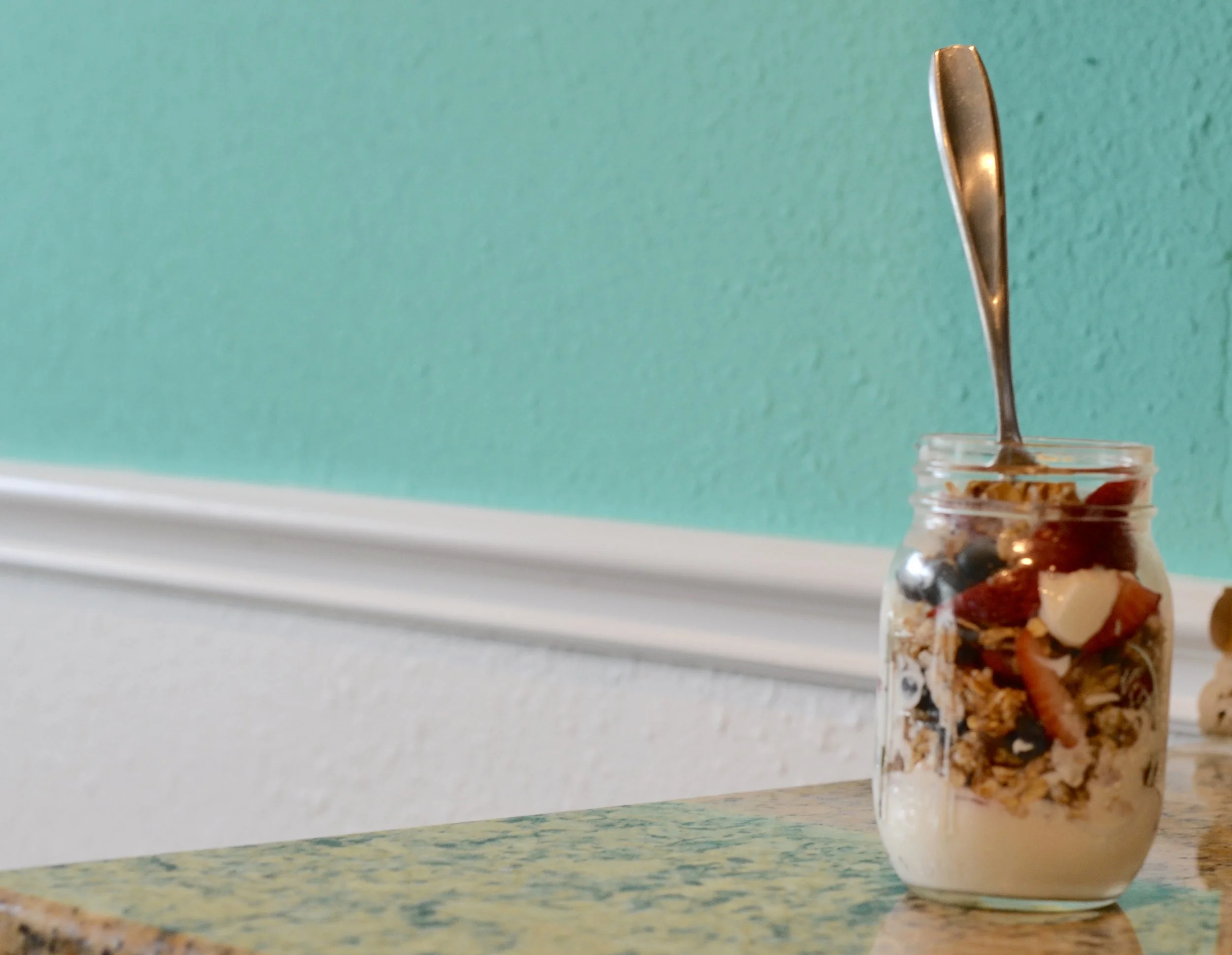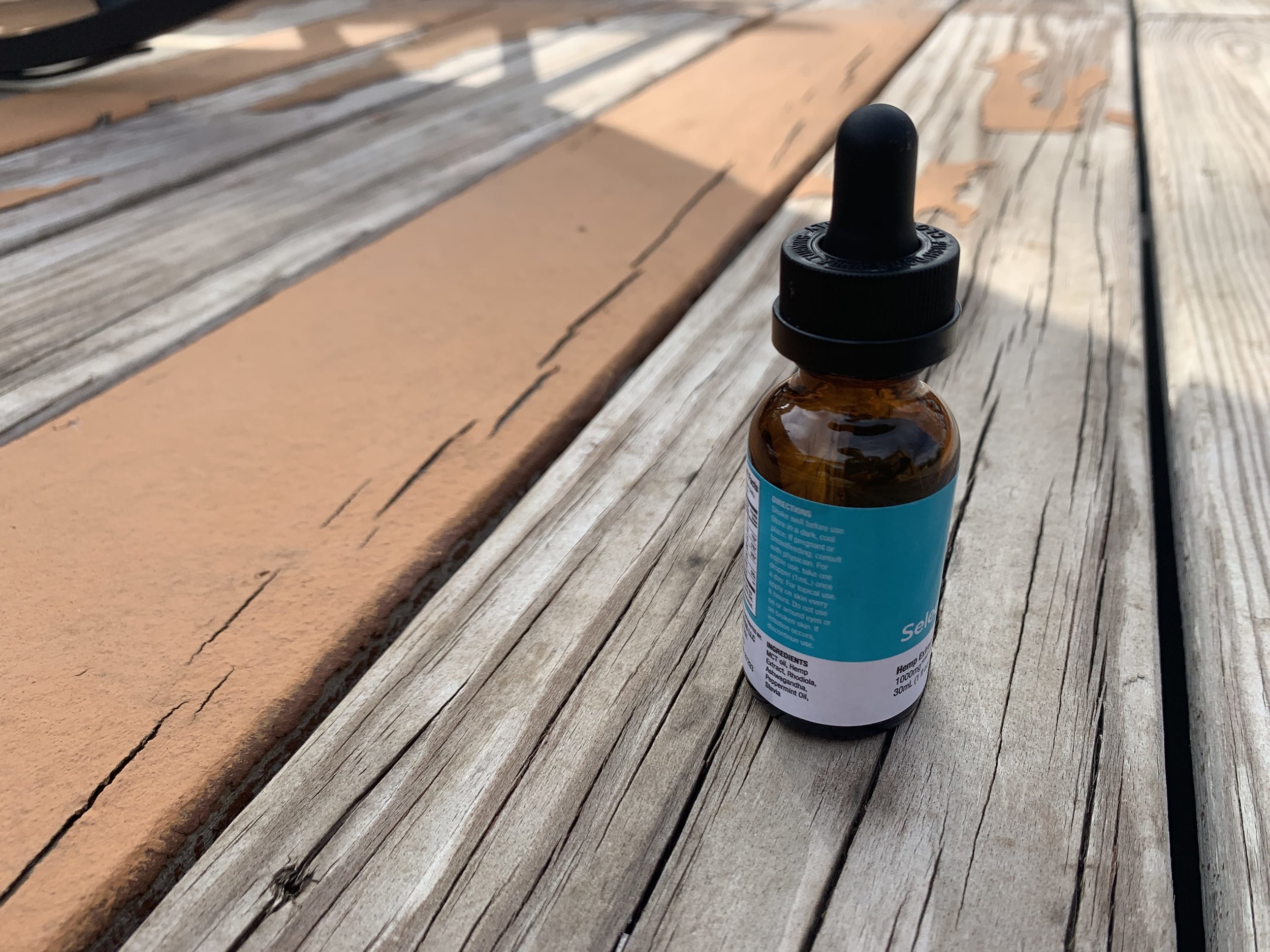Once a month on Sunday morning, hubby and I roll out of bed, strip off our clothes (stay with me here)... and step on the bathroom scale. It's one way we monitor our health. Hubby goes first. He is smiling ear to ear because he lost four pounds. I'm feeling optimistic, after an eight-hour sleeping fast, my belly feels flat, I feel light.
With butterflies in my stomach, I step on the scale. My heart sinks because I'm up two pounds. My first instinct is to freak out. After all, I've conditioned myself over the last 20-something years to put a lot of weight (no pun intended) into that number that blinks back at me from the scale.
My mind is racing, maybe I shouldn't have had that last glass of wine last weekend. Maybe I shouldn't have had that second slice of pizza on a lunch date two weeks ago. My first instinct is to beat myself up over it. I suck! Even though intellectually I know better, it takes a long time to undo years of emotional conditioning.
The ironic part is that I am not even trying to lose weight, so where do those butterflies come from? Why do I feel nervous stepping on a scale even though I'm happy with my current body? Why do I care about two pounds anyway? I know I feel an emotional connection to the scale even when there is not much at stake and I can vividly remember that feeling when I was desperately trying to lose weight all those years ago. I know that it feels like the scale really matters, but let me explain why it doesn't matter at all.
the scale is a liar: Why your scale weight doesn't matter for fat loss. Do me a favor and save to your favorite health Pinterest board for later.
WHY YOUR SCALE WEIGHT DOESN'T MATTER
After stepping on the bathroom scale and feeling a little defeated, I headed over to CryoNation in Grapevine where they have an InBody Body Composition Analyzer scale. My results? I learned that yes, I gained two pounds, but my body fat analysis showed that I gained muscle and lost body fat.
That is actually the best result I could have hoped for! More muscle equals a higher metabolism. Two pounds of muscle on the scale is a great achievement. My hard work in the gym (shredshed) is paying off! Now I'm thrilled with my result of a two pound gain. I think I'm officially allowed to use the #gainz hashtag now. hah.
The less-knowledgeable me would have seen a two-pound weight gain on the scale and would have tried to diet harder and run more, which would have made things worse, maybe even have undone my positive progress. The bathroom scale doesn’t tell the whole picture, especially when you are lifting weights! You have to measure your body composition to know your real results.
A lower number on the scale is not always a good thing, if you lose muscle with fat, that would be a poor result because it lowers your metabolism and becomes harder to maintain your weight loss when you lose muscle.
A higher number on the scale is not always a bad thing, like in my results, the number was higher but it showed an increase in muscle and a decrease in fat.
THE SCALE ONLY MEASURES BODY WEIGHT
The scale only measures your overall bodyweight and that number is pretty much irrelevant to your overall health. When you are trying to lose weight it is imperative that you focus on fat loss and not just weight loss. Ideally, we want to lose fat and maintain or gain muscle. You do this by eating adequate amounts of protein and including resistance training in your workouts.
Muscle is more dense than fat, so a pound of muscle takes up less space in your body than a pound of fat. 150 pounds with a low body fat percentage looks completely different than 150 pounds of a high body fat percentage. More muscle and less fat equals a smaller size body no matter what the number on the scale says.
I love this illustration from @jenniferhudy on Instagram (posted with permission: go follow her). Of course she looks beautiful in both pictures, but she is 12 pounds heavier on the right. The scale can't show the kind of results these pictures show. Do you think she's upset she gained 12 pounds? Of course not! She is thrilled she gained muscle and lost fat for a healthier body composition.
TOSS YOUR SCALE OUT THE WINDOW
The bottom line is that if you lose two pounds of fat and gain two pounds of muscle, the scale weight will be exactly the same. Your body composition and metabolism would have improved but your weight would stay the same. The scale would imply that you that you're not making progress and you may feel frustrated when in fact, you made wonderful progress.
Toss that scale out the window (make sure it's open first. ha) and focus on fat loss. I explored these topics a little deeper in two blog posts: Why You Should Ditch The Scale and What You Should Do Instead and How to Breakthrough Fat Loss Plateaus With Outcome-based Decisions. I hope you'll check them out.
Now I gotta get back in the gym so I can see another gain in muscle next month.
Did you like this post? Do you know someone who might benefit? It helps me when you share with your friends and followers.













If you have questions about running and weight loss, I’ve rounded up the blog posts to help you with answers. Why do I gain weight during marathon training? What to do when your weight loss plateaus from running. Are you running for performance, or running for weight loss? And why it matters that you choose one. I finish my personal story of how I used running as part of my strategy for permanent fat loss.